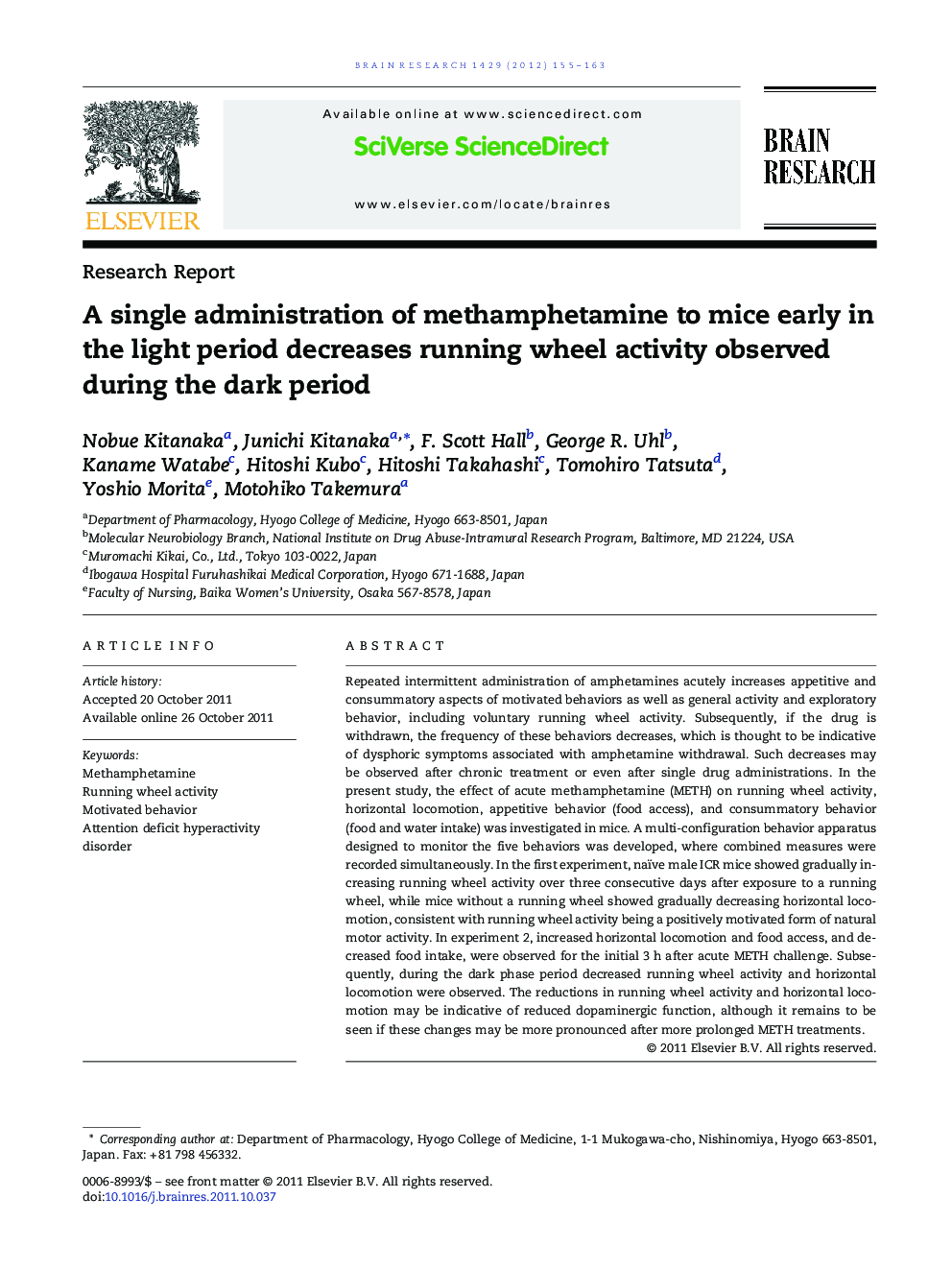| Article ID | Journal | Published Year | Pages | File Type |
|---|---|---|---|---|
| 6264678 | Brain Research | 2012 | 9 Pages |
Repeated intermittent administration of amphetamines acutely increases appetitive and consummatory aspects of motivated behaviors as well as general activity and exploratory behavior, including voluntary running wheel activity. Subsequently, if the drug is withdrawn, the frequency of these behaviors decreases, which is thought to be indicative of dysphoric symptoms associated with amphetamine withdrawal. Such decreases may be observed after chronic treatment or even after single drug administrations. In the present study, the effect of acute methamphetamine (METH) on running wheel activity, horizontal locomotion, appetitive behavior (food access), and consummatory behavior (food and water intake) was investigated in mice. A multi-configuration behavior apparatus designed to monitor the five behaviors was developed, where combined measures were recorded simultaneously. In the first experiment, naïve male ICR mice showed gradually increasing running wheel activity over three consecutive days after exposure to a running wheel, while mice without a running wheel showed gradually decreasing horizontal locomotion, consistent with running wheel activity being a positively motivated form of natural motor activity. In experiment 2, increased horizontal locomotion and food access, and decreased food intake, were observed for the initial 3Â h after acute METH challenge. Subsequently, during the dark phase period decreased running wheel activity and horizontal locomotion were observed. The reductions in running wheel activity and horizontal locomotion may be indicative of reduced dopaminergic function, although it remains to be seen if these changes may be more pronounced after more prolonged METH treatments.
⺠Automated cages designed to monitor a range of mouse behaviors were developed. ⺠Running wheel activity (RWA) increased over 3 consecutive days in naïve mice. ⺠RWA did not affect total food or water intake compared with mice without RWA. ⺠A single dose of methamphetamine decreased RWA but not other measures.
